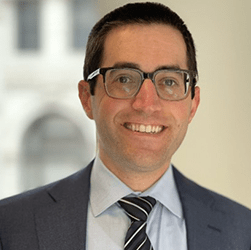Max Brossy
Max Brossy is a tax policy analyst on the federal policy team, where he supports advocacy and analysis of policy and legislative developments related to the Housing Credit, the New Markets Tax Credit, Opportunity Zones, and the proposed Neighborhood Homes Tax Credit. He is responsible for coordinating the commenting process for state qualified allocation plans (QAPs) in Enterprise’s market jurisdictions. He also manages the day-to-day administrative operations of the ACTION Campaign, which Enterprise co-chairs with NCSHA.
Prior to joining Enterprise, Max worked at a community college nonprofit in Los Angeles, worked on several political campaigns in the Los Angeles area, and interned for the California state legislature.
Max holds a masters in public policy from Georgetown University, where he interned for DC Council Chair Phil Mendelson and was a graduate student researcher studying – among other things – court data related to evictions.


